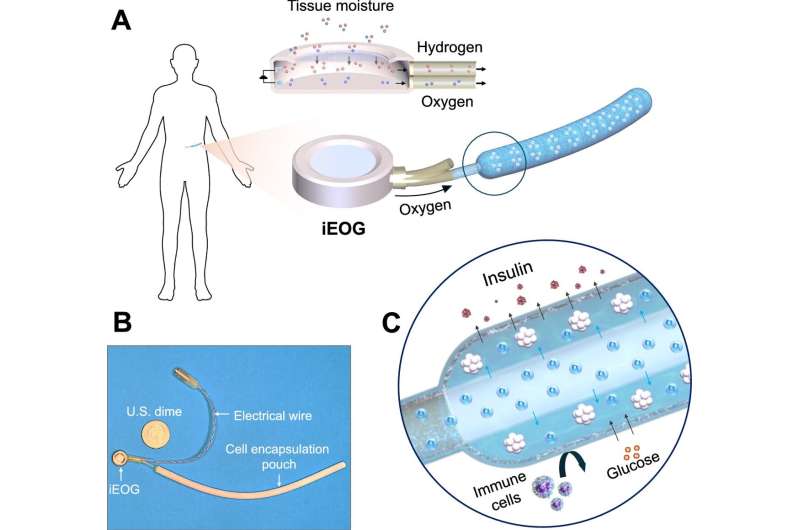The findings were published Aug. 11 in Nature Communications. The co-first authors were former postdoctoral researcher Tung Pham and doctoral candidate Lora (Phuong) Tran.
The technology builds off previous implantable encapsulation devices developed in the lab of Minglin Ma, professor of biological and environmental engineering in the College of Agriculture and Life Sciences (CALS) and the paper’s senior author.
Ma has explored a variety of ways to address type 1 diabetes, in which the body’s immune system turns hostile and destroys insulin-producing pancreatic cell clusters, known as islets. Without insulin, the body has no way to deliver glucose—sugar—into muscle and tissue cells to generate energy. People with type 1 diabetes typically manage the disease through daily insulin injections or insulin pumps, but even with that treatment, patients still suffer devastating effects of the disease.

